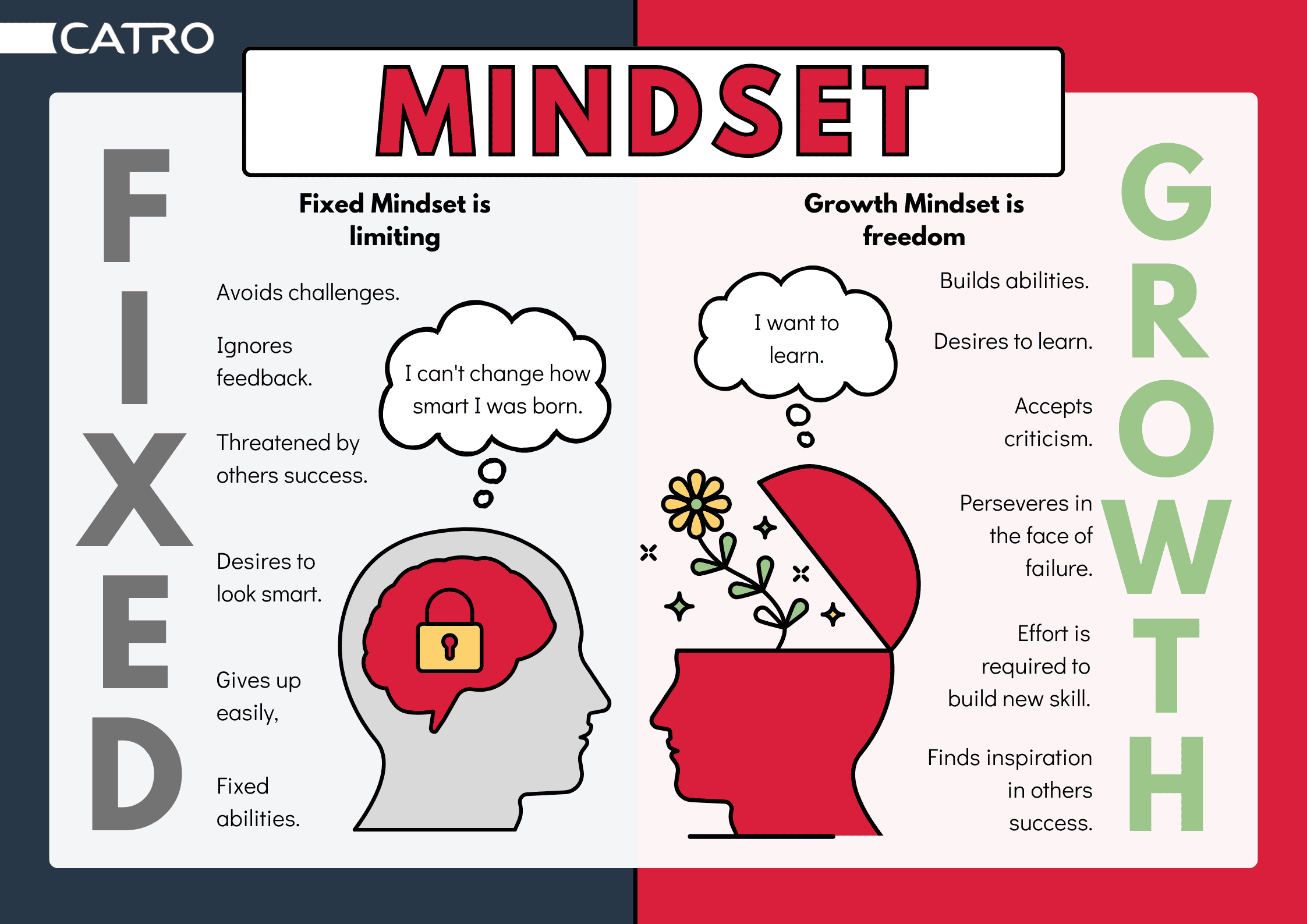Fixed vs. Growth – The Two Basic Mindsets That Shape Our Lives
Within each of us live two wolves: one clings to comfort and fears change; the other hungers for growth, learning, and new horizons. Every challenge we face is a chance to choose — to stay small or to rise stronger. The future is not written by talent or luck, but by which wolf we dare to feed.
This is a fundamental choice which shapes our personality and who we become. In more than 2 decades of research with children and adults Dr. Carol Dweck (professor in psychology at the Stanford university) states that the view you adopt for yourself profoundly affects the way you lead your life. It can determine whether you become the person you want to be and whether you accomplish the things you value.
What is behind these 2 types of choices/mindsets that shape our reality and our future?
The “fixed mindset” assumes believes that traits like character, intelligence, and creativity are unchangeable, and that success simply proves these natural abilities. In this view, achieving success — and avoiding failure — becomes essential to preserving the image of being smart or capable. Believing that your qualities are carved in stone — the fixed mindset — creates an urgency to prove yourself over and over. If you have only a certain amount of intelligence, a certain personality, and a certain moral character — well, then you would better prove that you have a healthy dose of them. Can you think of people in your life – at the workplace or among your friends, whose main motivation was to prove themselves – how smart, how good, how worthy they were?
A “growth mindset,” on the other hand, embraces challenges and views failure not as proof of inadequacy, but as a powerful opportunity to grow, learn, and expand our abilities. This mindset is based on the belief that your basic qualities are things you can cultivate through your efforts. Although people may differ in many ways — in their initial talents and aptitudes, interests, or temperaments — everyone can change and grow through application and experience. At the heart of what makes the “growth mindset” so winsome, Dweck found, is that it creates a passion for learning rather than a hunger for approval. Not only are people with this mindset not discouraged by failure, but they do not actually see themselves as failing in those situations — they see themselves as learning.

Out of these two mindsets, which we manifest from a very early age, explains a great deal of our behaviour, our relationship with success and failure in both professional and personal contexts, and ultimately our capacity for happiness.
If you want to make a short self-assessment which is your leading mind-set in life and work you can check out this quiz: https://wdhb.com/blog/growth-mindset-quiz/
For further inspiration, please check: https://www.youtube.com/watch?v=hiiEeMN7vbQ
For further reading, we recommend:
Mindset: The New Psychology of Success, Carol S. Dweck
After decades of research, world-renowned Stanford University psychologist Carol S. Dweck, Ph.D., discovered a simple but groundbreaking idea: the power of mindset. In this brilliant book, she shows how success in school, work, sports, the arts, and almost every area of human endeavour can be dramatically influenced by how we think about our talents and abilities. People with a fixed mindset — those who believe that abilities are fixed — are less likely to flourish than those with a growth mindset — those who believe that abilities can be developed. Mindset reveals how great parents, teachers, managers, and athletes can put this idea to use to foster outstanding accomplishment.
